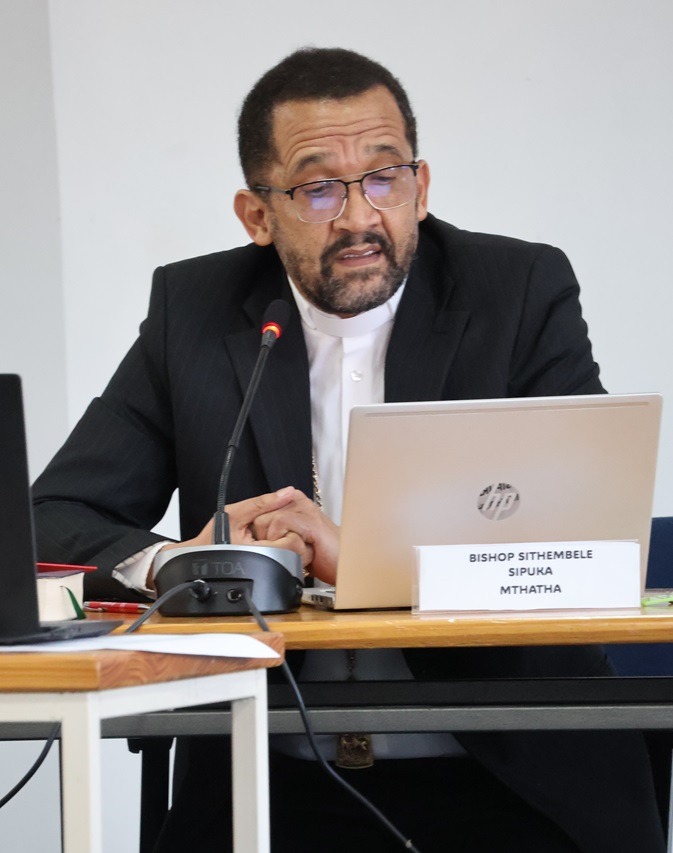Bishop Sipuka: Illegal mining is “complex and requires research to assign responsibility for it”
Illegal mining in South Africa is quite “complex and requires research to assign responsibility for it,” said the Local Ordinary of Mthatha Diocese.
In a statement shared with the Southern African Catholic Bishops Conference (SACBC), Bishop Sithembele Anton Sipuka calls on mining companies to be held accountable for failing to rehabilitate and properly close mines in South Africa.
“I notice that the news focuses on the government, but nothing much is said about the mining companies who left these mines unrehabilitated and unclosed. The law should hold them accountable,” said Bishop Sipuka in the January 02, 2025, statement.
In the statement, the SACBC outgoing President calls for “a humane way of dealing with” the hundreds to thousands of artisanal miners (known locally as zama zamas) who have since about August 2024 been trapped underground at the Stilfontein mine shafts in the North West under gruesome, undignified, and life-threatening conditions.
Bishop Sipuka notes that the issue of illegal mining in South Africa is “complex and requires research to assign responsibility for it,” as “It involves the economic system which allegedly lets big mining companies get away with murder in the way they make maximum profits while destroying the environment and not improving the lives of the people in the area of mining” and at the same time clamping “down on poor people trying to make a living.”
The new President of the South African Council of Churches (SACC) further suggests the “possibility of introducing the use of old mines for economic and employment creation,” as per news reports illegal mining in South Africa, particularly in areas like Stilfontein, poses significant economic losses of approximately R14 billion (about US$1 billion) annually in revenue from gold alone due to these illicit activities.
As government, law enforcement, and human rights activists remain at odds over the responsibilities of mining companies, the rights and safety of illegal miners, and the enforcement of laws against illegal mining activities, Bishop Sipuka calls for patience and dialogue “with all involved in this situation, including the illegal minors themselves.”
“As the SACC has done on its visit to Stilfontein, we need to engage and discuss this with all involved in this situation, including the illegal minors themselves. While the solution is yet to be found, we need to be patient and listen to each other because human beings are involved in this situation,” said Bishop Sipuka.
At least 1,500 illegal miners mainly from Mozambique, Lesotho, and Zimbabwe have resurfaced in Stilfontein mine shafts, with unknown numbers still trapped underground.


0 Comments